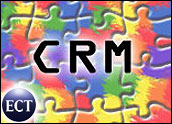
We live in a data-rich world. Data is everywhere you look, and used in so many ways — to build e-mails, generate lists, create target groups, form reports, even to construct the foundation of a valid strategy. Yet data remains an elusive and stubborn beast, and it can become a point of contention between the users (the marketers) and the keepers (the technologists).
To develop a picture of how our marketing efforts are affecting consumers, we must connect the dots between information that describes the people with whom we are communicating, the ways in which we have reached them (through the channels by which we have made contact, as well as the content that has brought about this contact), the ways in which they have responded to our communications, and the value of those responses.
Understanding the Elements
It is important that we understand each of these fundamental components so that they drive intelligent, strategic decisions. This certainly justifies efforts to wrestle with the data to achieve this understanding. Too often, however, decisions are made in the absence of data, simply because it is neither readily available nor easily decipherable.
I have found that, in most cases, an embarrassment of riches exists when it comes to data and analytical tools. Yet there remains a paucity of useful information to guide strategic planning and tactical implementation. Why is this? One reason is the lack of focus on identifying concrete information needs based on program objectives; a second is the difficulty in accessing the relevant data.
While required data may be difficult to identify or access, it is preferable to start the data-examination process somewhere rather than wait around for the perfect entry point to reveal itself. Taking the plunge grants business users valuable information as they wait for more thorough answers. Moreover, analyzing this seemingly incomplete information offers valuable insights into the ongoing development of important information solutions.
Defining the Data Expert
How can companies go about the business of closing the gap between an excess of data and a scarcity of information? There is an expertise required that is often missing — that of an individual whom we will call a “data expert.” Don’t confuse data expertise with analyses that push industry-related data without taking a business’ unique needs into account or that would disperse information without first translating it in terms your marketing department and IT staff can understand.
A true data expert knows how to break down data and analyses to fit the intelligence needs of your marketing staff, translate those needs into quantifiable, measurable terms, and then help apply the same information in the form of tactical programs that meet strategic initiatives.
Although education provides a data expert with the process know-how, real-world experience is essential to interpreting data in a way that is useful to your business. Generally, broad-based exposure across departments and across industry verticals, along with channel experience in areas of data delivery (e-mail and direct mail are just a couple of examples), provides the data expert with the tools necessary to unlock your data’s potential.
Acting as a Liaison
Not only will the data expert uncover the usable information hiding in your data, he or she also will effectively deliver this data in a manner that is useful to both your marketing and IT departments without alienating either group. Given the sometimes contentious viewpoints on the way data is requested and exchanged between marketing and technology experts, a data expert provides practical services that bridge this gap.
For example, a seemingly simple request from the marketing staff such as “What URLs drive the most clicks?” can overwhelm the IT staff, who may not know how the marketing staff wishes to define “URL.” This “simple” question may be interpreted as, among other things:
- URL Destination: Five different URLs go to the same site. Do we collapse these clicks into one category, or analyze by the five individual URLs?
- URL Location: Do we take into account the location of these clicks in the HTML template, and if so, how do we categorize them? “Real estate” within a template has a significant influence on clicks, and URL analyses by this dimension reveal important insights into design.
- URL Order and Frequency: Do URLs at the top of the page get more responses? Or, if there are five URLs of the same destination or purpose, will the aggregate click rate be higher than if there are only three? Do we factor in cannibalization when three of these clicks lead to the same destination?
Given that the IT department may lack the time or resources to ask the questions that would clarify such a request, the data expert steps in to reduce the complexity of the demand, first by asking the marketing department concrete questions about their business objectives, and then by translating “market-speak” into data terms that are more meaningful to your IT folks. Moreover, by describing the objectives behind the data request, these techies develop a greater interest in what you are trying to demonstrate and are better equipped to contribute in very powerful ways to information solutions.
Cultivating Data
A data expert can also help others to recognize the potential value of incomplete, dirty or hard-to-access data and is able to demonstrate in a practical manner how the business intelligence or process gains will justify efforts. This often means that all parties must be willing to start small and allow growth to occur in stages instead of overreaching and stretching current capabilities or resources.
In addition, a data expert has the ability to team up with marketers to perform opportunities and gaps analyses on the data. An opportunities assessment reveals where you can effectively leverage existing data, while a gaps analysis reveals where you need to augment data to render the required information. The better you know the data, the more precisely you can define your needs and recognize limitations or opportunities.
Finally, a data expert defines the steps necessary to evolve and learn each time you apply your information so that you can leverage it in subsequent plans. And by enabling you to share the results of your data discoveries with the data keepers themselves, the data expert helps you to cultivate and maintain the data keepers’ cooperation, interest and support.
Katie Cole is vice president of analytics and research for Quris, a customer-centric email solutions agency forFortune 1000 companies. Cole has over 20 years of in-depth knowledge and experiencein data mining, statistical modeling, primary research and softwaredevelopment in a variety of industries including telecommunications,broadband, Internet and financial services.















































